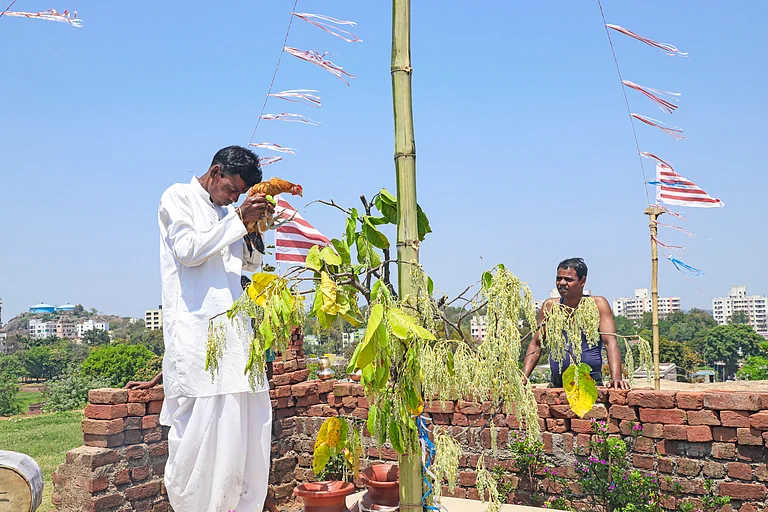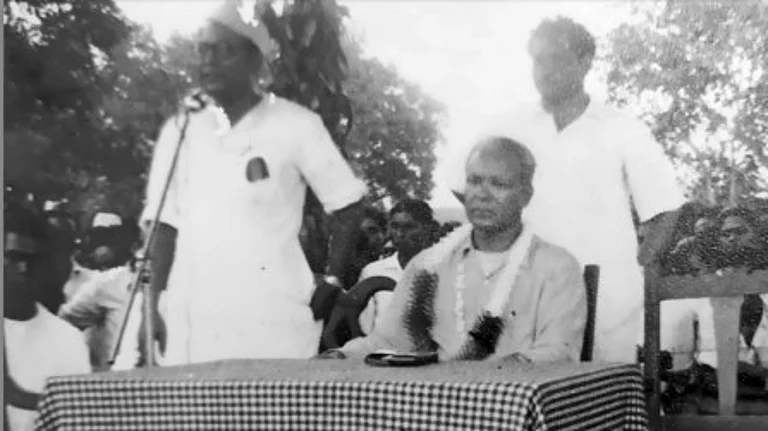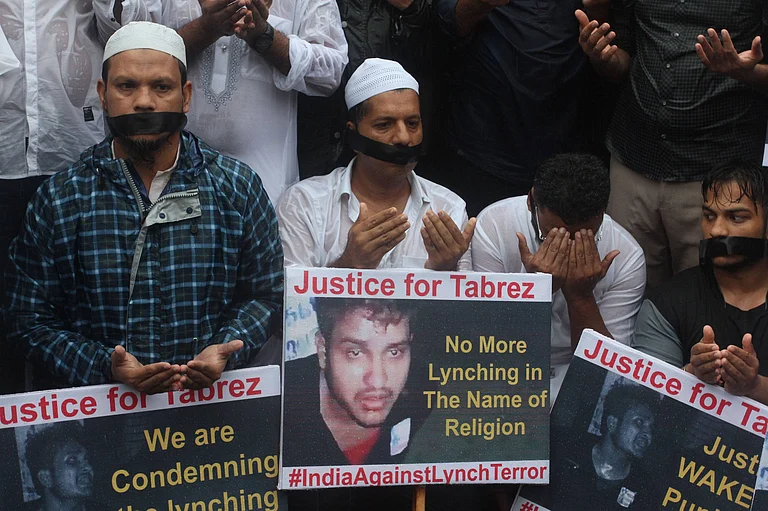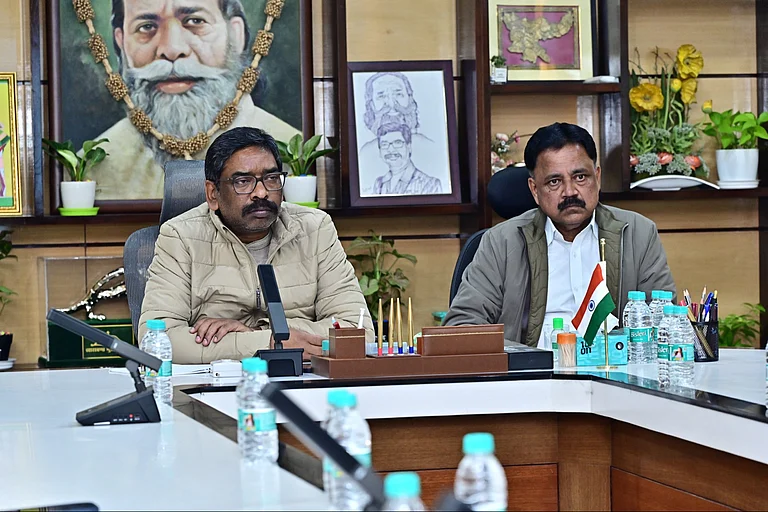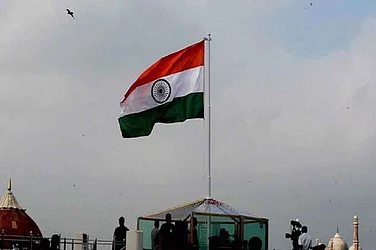As the speculation over Jharkhand Chief Minister Hemant Soren’s possible arrest by the Enforcement Directorate (ED) for his alleged role in the illegal mining scam is gaining strength, political analysts are apprehending its impact on the INDIA bloc. Coming at a time when the opposition alliance is already struggling on several fronts after the exit of Nitish Kumar, ED’s sudden appearance at his house in Delhi, leading to the seizure of his car and the peddling of a story that he is “untraceable”, holds immense political significance.
The spokesperson of Jharkhand Mukti Morcha (JMM), Supriyo Bhattacharya, tells Outlook, “Who said he was untraceable? He came to Ranchi yesterday only. He is now holding a meeting with his cabinet. It is just BJP’s efforts to taint his image.”
Adding that the JMM would politically retaliate, Bhattacharya asks, “How could they arrest him? Is there any evidence at all?”
Soren even earlier said that the ED’s actions are “politically motivated”. The ED asked Soren to record his statement on or before January 31. The Jharkhand CM in his response referred to his engagements and said that he would be busy in planning the budget session that is scheduled to commence on February 2.
Why is Soren calling the attempt of ED “politically motivated”? What could be the BJP’s interest in a small state that has only 14 Lok Sabha seats of which they won 11 in the 2019 Lok Sabha elections? Political observers think that there are majorly two factors that make Soren a political roadblock to BJP’s march among Adivasis.
The first one is Soren’s continuous evocation of Sarna dharma. In 2020, he passed a unanimous resolution in the Jharkhand assembly —known as the Sarna Code— and sought separate recognition of Sarna as a religion in the 2021 Census. He also passed the buck to the Centre’s court by asking Prime Minister Narendra Modi to include it within the ninth schedule to avoid judicial scrutiny.
This separate recognition of Adivasis has been historically opposed by the BJP and its parental organisation Jana Sangh. On one hand, they prefer to call them ‘vanavasi’, denying them the status of ‘adi’; on the other, they consider them to be Hindu. Modi’s multiple invocation of Shabari Mata —an apparent Adivasi character in the Ramayana— during his post-consecration speech on January 22 also points at how the party wants to accommodate them in the broader Hindu fold.
In Jharkhand, such perception is stronger and hence the division among Adivasis and non-Adivasis. Last year while talking to Outlook, senior BJP leader and MLA Ramchandra Chandravanshi said, “What is Sarna? All of us are Hindus. Adivasis worship nature but that doesn’t buy them the recognition of a separate religion.”
In the recent past, the BJP has been found wooing the Adivasi constituencies repetitively. Modi’s decision to celebrate Birsa Munda’s birth anniversary at his village besides the launching of projects amounting to Rs 24,000 crores make the political intentions clear. A Jharkhand-based political analyst says, “As the Congress and the opposition parties are trying to address OBCs through the promise of caste census, the BJP is shifting its electoral focus to Adivasis.”
It is one of the major reasons that the party chose Vishnu Deo Sai, a senior Adivasi leader from Chhattisgarh, instead of Raman Singh. “The party didn’t want to repeat the mistake of Jharkhand,” says a senior journalist. In 2014, the BJP made Raghubar Das, a non-Adivasi, the CM of Jharkhand. Several political analysts attribute the decimation of the BJP in the 2019 Jharkhand assembly elections to Das.
In this backdrop, with Sai as the new Adivasi face, the BJP doesn’t want any assertion of separate religion for Adivasis, especially at a time when the Ram Mandir inauguration was projected as an event to unite the country, think political analysts. But Soren’s political survival depends on the assertion of Sarna only. He repeatedly claimed the credit for passing the Sarna Code and asked the central government to do their part.
The second factor lies in Soren’s importance as a member of the INDIA coalition. As Nitish Kumar has already left the bloc and Mamata Banerjee declared that she would go alone, Jharkhand is the opposition’s only hope in the eastern zone.
Besides, Soren is the only Adivasi leader in the opposition. INDIA’s failure to address Dailt parties like the Bahujan Sama Party (BSP) or for that matter Chandrasekhar Azad despite having a Dalit chairman whereas may affect them electorally, the absence of Adivasi leaders could hurt them the most. In the latest round of assembly elections of Madhya Pradesh, Chhattisgarh, and Rajasthan, Congress lost across the Adivasi belts. As per the 2011 census, the Adivasis comprise 8.6 per cent of the total electorates.
These factors are also peppered with the BJP’s sense of being betrayed by JMM in 2010. The then Shibu Soren government though was a part of the BJP-led National Democratic Alliance (NDA), his party decided to support the Congress-led United Progressive Alliance (UPA) during a cut motion brought by the BJP and left parties. After pulling out support from Soren, the then-BJP General Secretary Ananth Kumar said, “He (Soren) has behaved in a very dubious manner and voted with the government during the cut motion. BJP has taken very serious note of this betrayal and dubious conduct.”
The historical relation between JMM and BJP, however, has been on and off for decades and that memory probably doesn’t matter much to the BJP, notes a political analyst. But what matters is the Adivasi votes and the struggle over the recognition of a separate religion. Will it be then the end of Soren’s dominance in Adivasi regions? The next few days hold multiple answers.








